
The world is rapidly evolving. With every passing day, there’s something new in the market. And in such a scenario, mastering hard skills is just a small part of the equation.
Hard Skills + Soft Skills = Professional Success + Personal Fulfillment
The other important part is often overlooked & underestimated. Thus, resulting in a workforce that does network but doesn’t actually connect.
LMSs today are not just delivering technical/hard skills but also leading the frontier for soft skill development.
In this blog, we’ll explore in depth about the various soft skill training topics. Along with their benefits, techniques and the most popular ones. As a trainer, this will act like an ultimate guide/niche-finder to help you deliver your expertise.
What is Soft Skill Training?
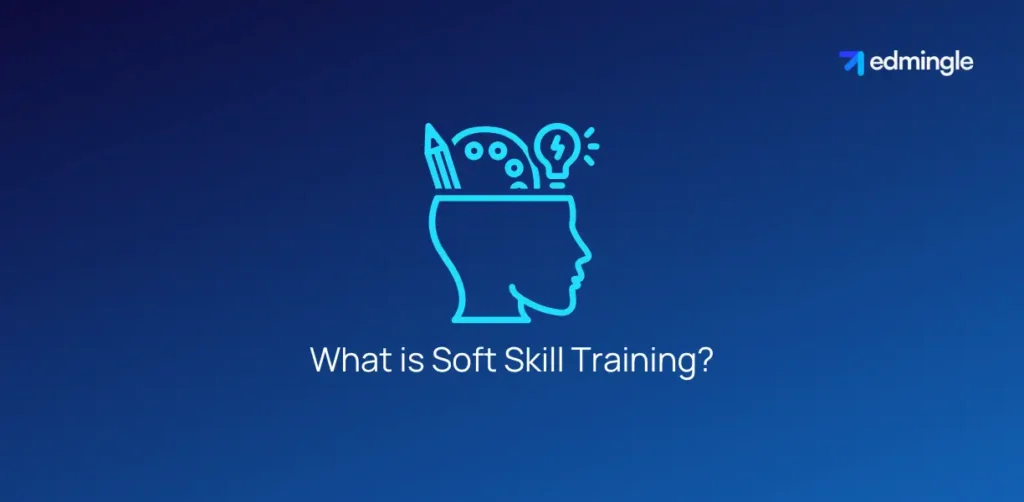
It refers to the development of personal attributes and interpersonal abilities. These are crucial in enabling individuals to:
- navigate their environment,
- work well with others,
- manage their emotions, and
- achieve their goals with complementing hard skills.
Unlike technical skills that are often job-specific and measurable, these are about people skills. How they interact, communicate and adapt to change.
It covers a broad spectrum of competencies including leadership, teamwork & communication. Furthermore, problem-solving, time management, emotional intelligence and adaptability.
Explore about LMS for Training.
Soft Skill Training at Workplace
At workplace, it aims to enhance an individual’s effectiveness & improve team dynamics. All while fostering a positive work environment. It ultimately contributes to the overall success and productivity of an organization.
Often delivered through workshops, seminars, soft skills training programs & practical exercises. These make individuals more adaptable, resilient and effective. In both their professional & personal lives.
Also read about LMS for Professional Development.
Key Benefits of Soft Skill Training
In the modern professional setting, it emerges not just as an asset but a necessity. One that weaves together the fabric of a successful career and a harmonious workplace.
Although the benefits are manifold & multifaceted, some of the key benefits are:
| Enhanced Communication | Better Leadership | Enhanced EI (Emotional Intelligence |
| Improved Teamwork | Increased Adaptability | Boosted Conflict Resolution |
| Greater Professional Growth | Improved Customer Service | Greater Problem-Solving |
| Better Time Management | Improved Interpersonal Relationships | Improved Work-Life Balance |
In short, it is an investment in human capital. One that yields dividends necessary for building humane organizations in the 21st century.
How do Soft Skills Complement Hard Skills?

Both form the two halves of the whole that is professional competence. Where each complements the other to completely enhance an individual.
While the latter refers to the technical knowledge and abilities specific to a job or industry. Such as coding, machinery operation or financial analysis.
Soft skills are the interpersonal and emotional traits. These enable one to navigate the workplace, collaborate with others and lead effectively.
- The latter empowers individuals to apply their technical abilities more effectively. They facilitate better interaction within teams while enhancing leadership.
- It enables a smooth implementation of technical expertise in dynamic & often challenging environments.
In a nutshell, hard skills get you hired, but soft skills get you promoted. And together, they are the blueprint for job satisfaction & a successful career.
Since we talked about machinery operation, check our blog on LMS for Manufacturing Industry.
16 In-Demand Soft Skill Training Topics of 2024

The demand for these training has surged owing to the growing competition among corporations. And for employees, this is the deciding factor for staying competitive, relevant and effective.
Here are the 16 most popular soft skill training topics of today’s market.
1.Management

Management training equips professionals with necessary knowledge to lead teams, manage projects & drive organizational success. Key areas include strategic planning, resource allocation and performance evaluation.
2.Communication

Effective communication training is crucial for clear, concise and impactful message delivery. This encompasses both; verbal and non-verbal communication, active listening, and public speaking. Crucial in enabling professionals to express ideas and feedback constructively.
You might also like to read about the power of feedback in e-learning.
3.Customer Service
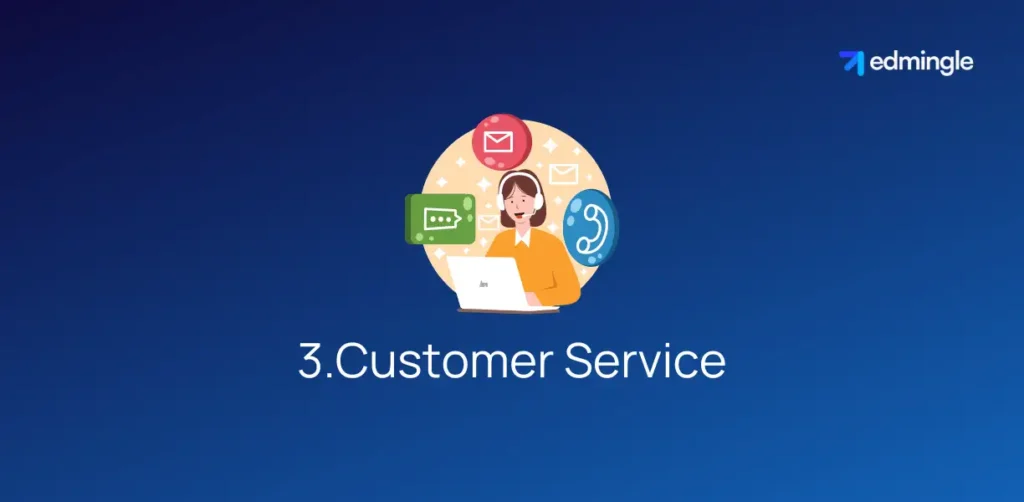
Customer service training emphasizes the importance of customer interaction expertise. This includes empathy, patience and problem-solving to ensure customer satisfaction and loyalty.
Explore about Edmingle customer support & service.
4.Leadership
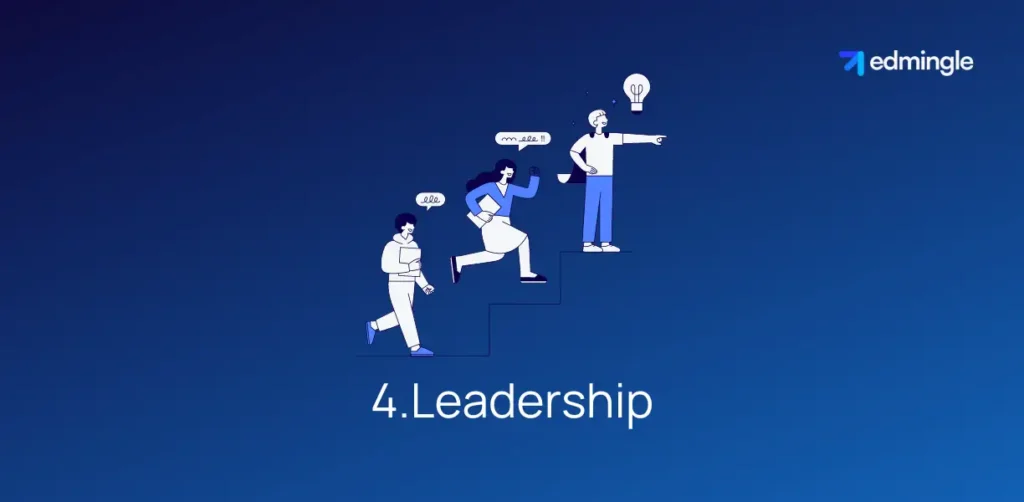
Effective leaders have the ability to inspire and motivate others. While fostering a positive and productive work environment. This includes vision setting, decision-making and emotional intelligence.
5.Problem-Solving

Problem-solving training teaches individuals to identify, analyze and resolve issues efficiently and creatively. It’s essential in navigating workplace challenges.
6.Time Management & Organization
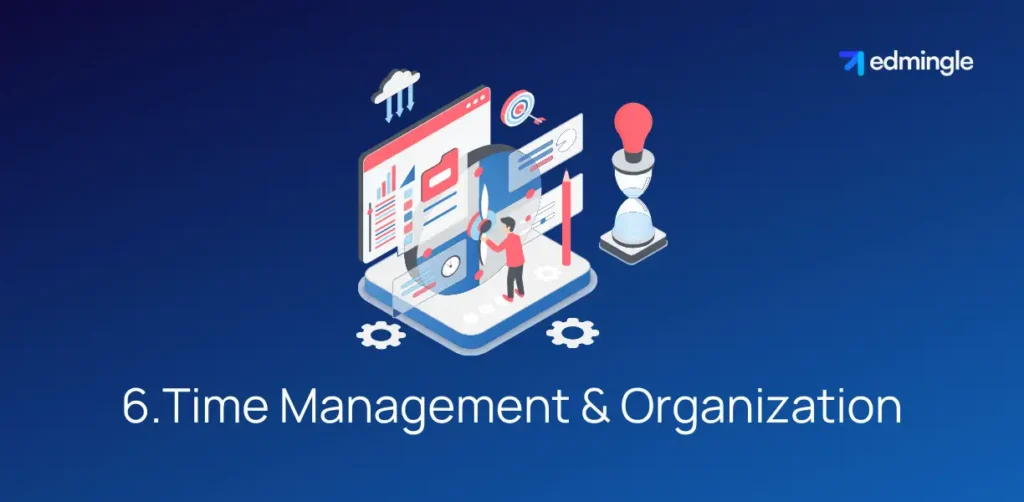
Time management skills and organization training focuses on prioritizing tasks, setting goals & developing strategies. All aimed at improving productivity and reducing stress.
7.Teamwork

Teamwork skills promote collaboration and cooperation among team members. While highlighting the importance of diversity, trust and communication in achieving common goals.
Read more about collaboration in our article on social learning.
8.Adaptability

Adaptability training prepares individuals to thrive in changing environments. It emphasizes flexibility, open-mindedness and the ability to learn from experience.
9.Ownership
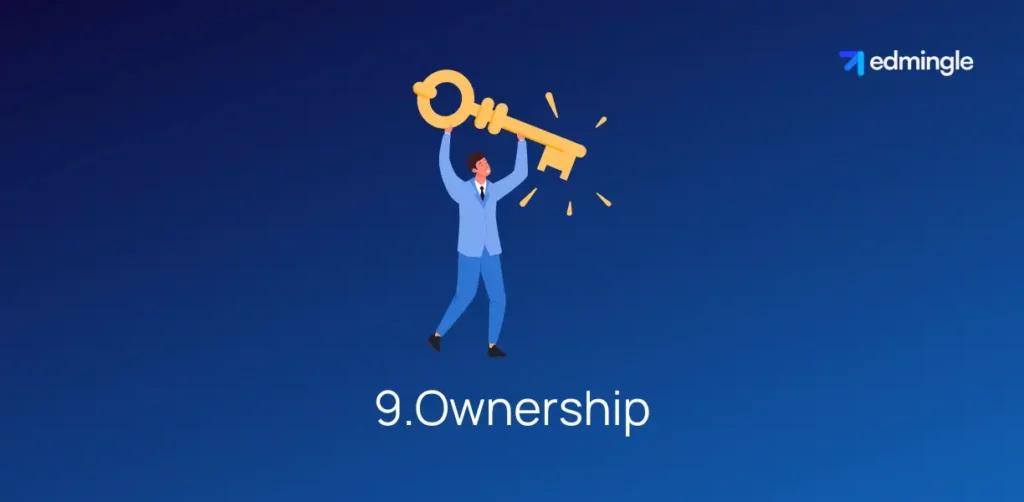
Ownership training encourages taking responsibility for one’s actions and decisions. Hence, fostering a culture of accountability and self-motivation.
Here are some key techniques for motivating students to learn more.
10.Critical Thinking
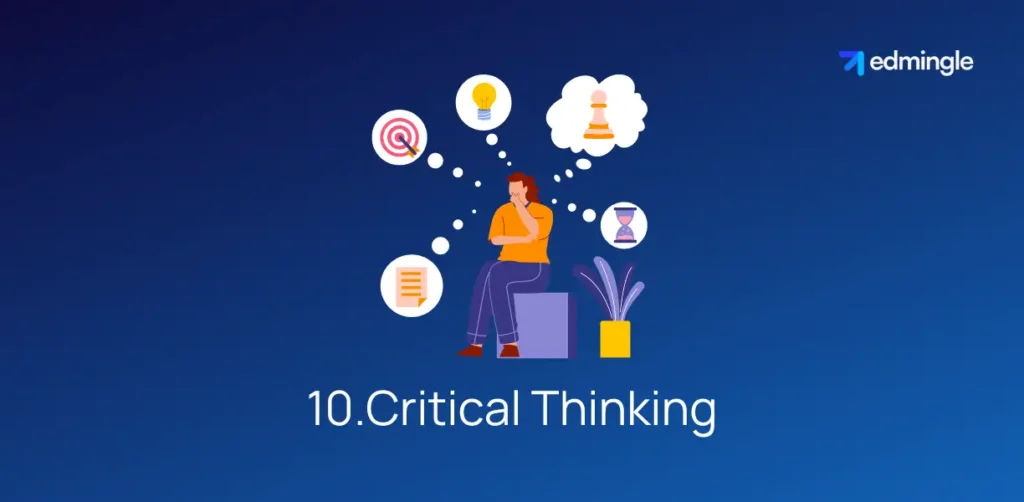
Critical thinking enhances the ability to analyze information, evaluate arguments and make reasoned decisions. Its a key competency in strategic planning and problem-solving abilities.
11.Interpersonal Skills
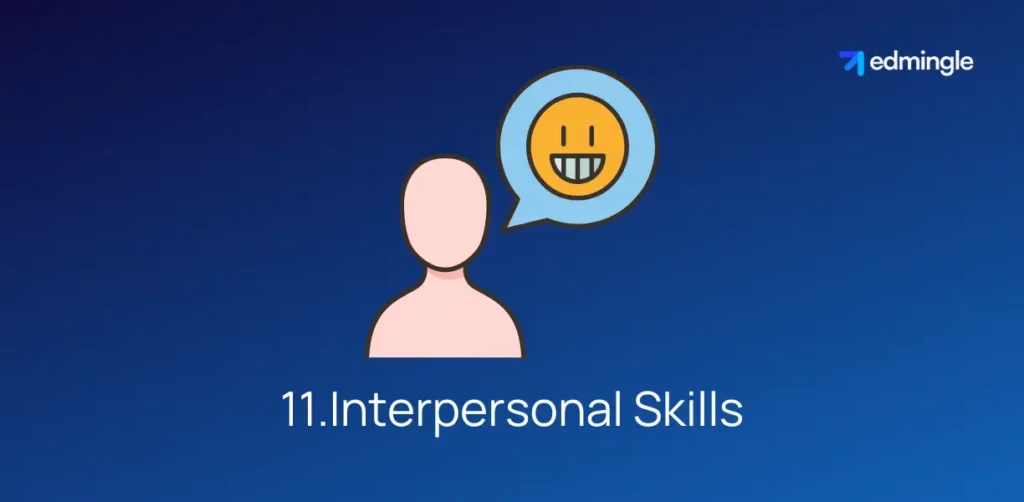
Interpersonal training focuses on building strong relationships. Mainly through empathy, respect and effective communication. It is highly crucial for teamwork and customer relations.
12.Emotional Intelligence
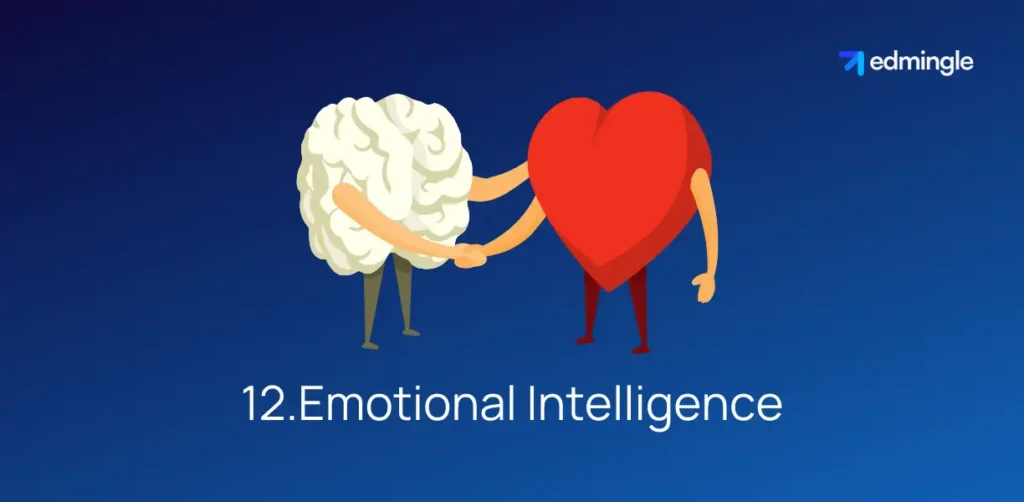
Emotional intelligence (EI) training develops self-awareness, self-regulation, social awareness and stronger relationship management. In the process, enhancing personal and professional relationships.
13.Networking
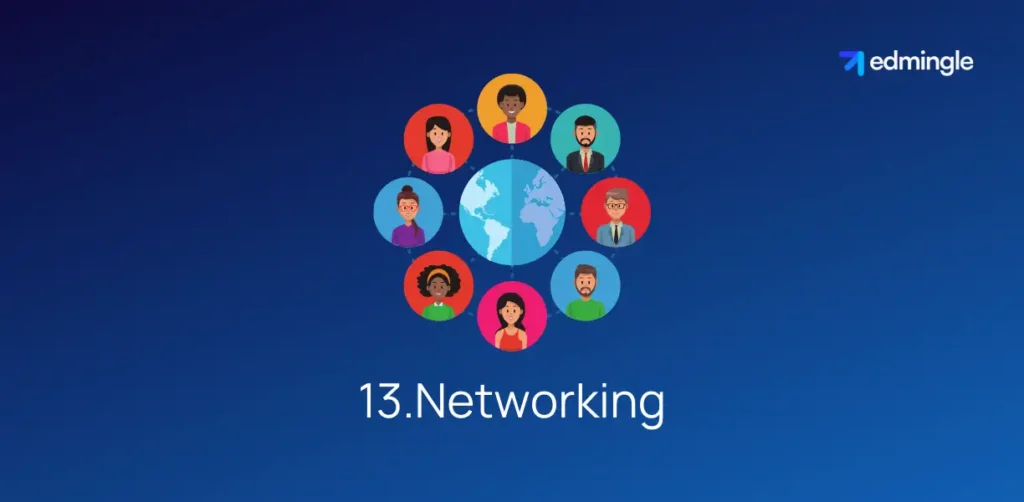
Networking training teaches the art of building and maintaining professional relationships. By emphasizing on the importance of communication, follow-up and mutual benefit.
14.Persuasion/Sales

Persuasion training improves the ability to influence others through effective communication, negotiation & presentation. This is highly valuable for sales, management and leadership.
15.Creativity
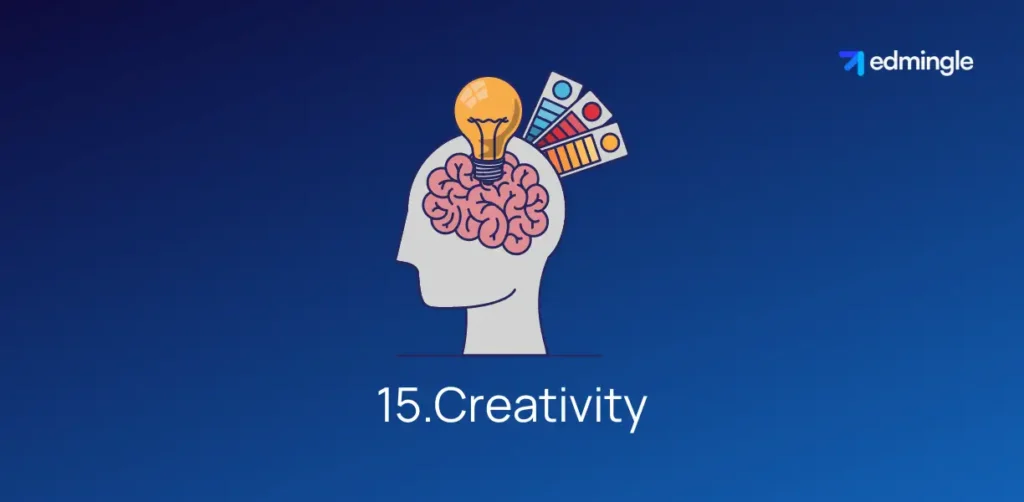
Creativity training encourages innovative thinking and the development of new ideas. Thereby, fostering a culture of innovation and problem-solving.
16.Conflict Management
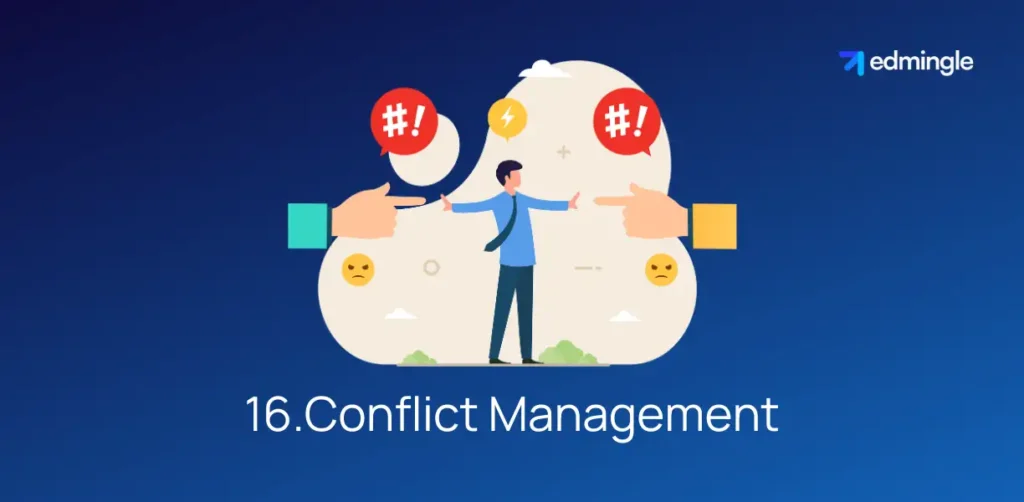
Conflict management training provides strategies for resolving disputes constructively. While also emphasizing communication, empathy and negotiation.
If you’ll closely observe these 16 training topics, you’ll realize there’s a link between them. Getting better in any one of them begins a chain reaction that develops all the others.
And this is what’s needed for modern workplace success.
10 Delivery Techniques of Topics for Soft Skill Training
As varied are the topics for this training, so are the delivery techniques for them. Determining the right channel is crucial for ensuring the effective application of training.
These techniques vary to suit different learning styles, objectives and environments. Here’s an overview of some key methods:
| 1.Workshops and Seminars | These are interactive sessions that typically focus on a specific expertise set. They encourage active participation through group discussions, role-playing and hands-on activities. Thus, facilitating real-time feedback and learning. Also read about active vs passive learning. |
| 2.E-Learning Modules | Online courses and modules allow participants to learn at their own pace and convenience. They often include videos, quizzes and interactive activities. While catering to a wide range of audience across different locations. Explore about Edmingle’s multi-batch & branch management feature. |
| 3.Coaching and Mentoring | One-on-one coaching or mentoring focuses on individual development. It provides personalized guidance, feedback and support. Thus, helping learners tackle specific challenges and achieve personal & career growth goals. Check our blog on LMS for Coaching Institutes. |
| 4.Case Studies and Real-Life Examples | Analyzing real-life scenarios helps participants understand the practical application for these skills. It encourages critical thinking and problem-solving skills. By offering insights into how these can be applied in various situations. |
| 5.Role-Playing | Role-playing exercises simulate real-world scenarios and challenging situations. Hence allowing participants to practice responses and behaviors in a safe environment. This technique is particularly effective for improving communication, negotiation and conflict resolution skills. |
| 6.Group Discussions and Brainstorming Sessions | These encourage open dialogue and collaboration among participants. Thereby, fostering a collective learning experience. They are useful for generating new ideas, perspectives and solutions to common challenges. |
| 7.Peer Feedback and Self-Assessment | Peer reviews & self-assessment tools help learners gauge their progress & identify areas for improvement. They encourage reflection on personal experiences and the application of new skills. Also read our article on navigating the challenges of online assessments and proctoring. |
| 8.Interactive Games and Simulations | Gamified learning experiences and simulations engage participants in a fun and interactive way. Making the learning process more memorable. They can be particularly effective for team-building and leadership roles. |
| 9.Webinars and Virtual Classrooms | Live or recorded webinars and virtual classrooms offer a flexible learning option. By bringing together participants from various locations. They allow for real-time interaction with instructors & peers through chat and discussion forums. |
| 10.Experiential Learning | This approach emphasizes learning through experience, including volunteering, internships or project work. It allows participants to apply soft skills in real-world settings. |
By employing the right delivery technique, you can cater to diverse learning preferences & needs. Hence, ensuring that participants not only understand the concepts but are also able to apply them effectively.
Summary
The rapidly changing market demands more than just technical expertise. It requires individuals who can navigate complex interpersonal landscapes. While adapting to change and leading with empathy & insight.
The blend of hard and soft skills forms the cornerstone of not only professional long-term success. But also personal fulfillment.
Soft skill training topics are a fundamental component of a well-rounded professional profile. It’s about bridging the skill gap so that people can thrive together.
And winding up, mastering the full spectrum of skills is the key to unlocking one’s full potential.
FAQs on Soft Skill Training Topics
1.Are soft skills measurable?
While more subjective than hard skills. Soft skills can be measured through behavioral observations. Additionally, via 360-degree feedback, performance reviews. Specific assessment tools are also designed to gauge emotional intelligence & communication skills.
2.How to assess soft skill proficiency?
Individuals can assess their soft skill proficiency through self-reflection. Or by gathering constructive feedback from peers and managers. There also exist some modern assessment tools for this purpose.
3.How long does it take to see improvements from soft skill training?
The time it takes to see improvements can vary widely among individuals. Some may notice changes immediately. While for others, it might take weeks or months of practice and application in real-world situations.

Leave a Reply